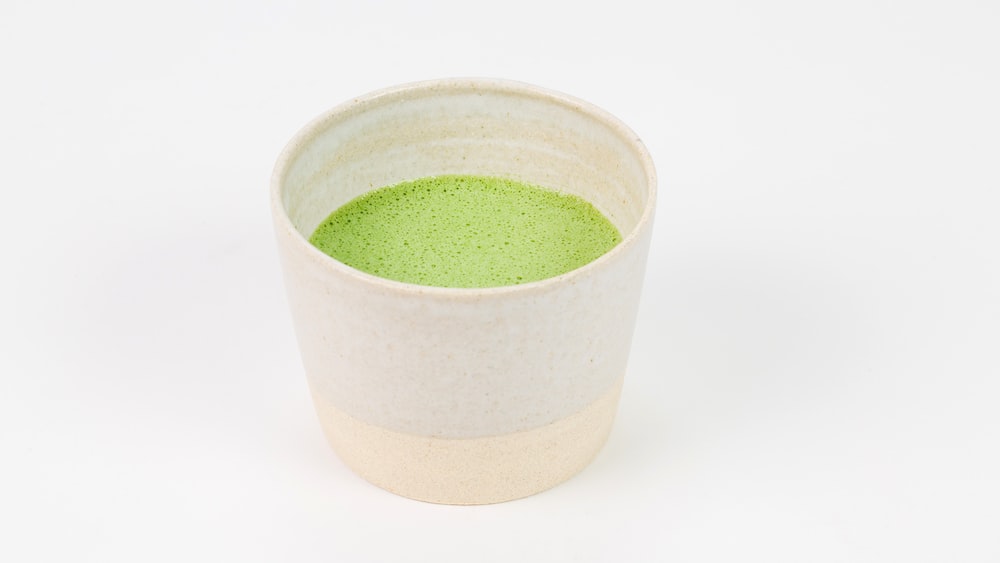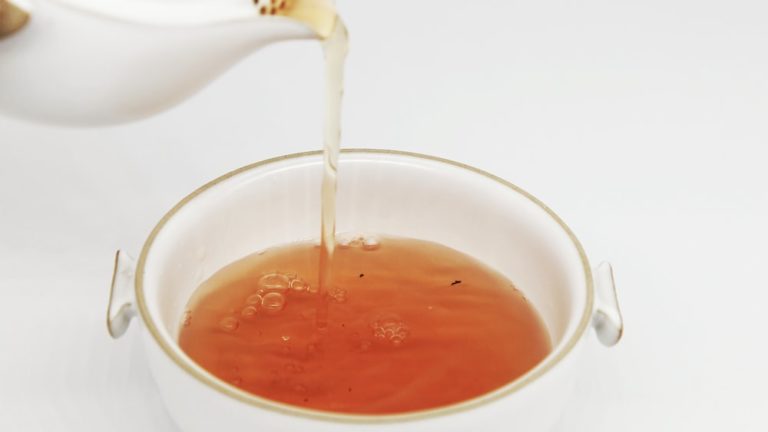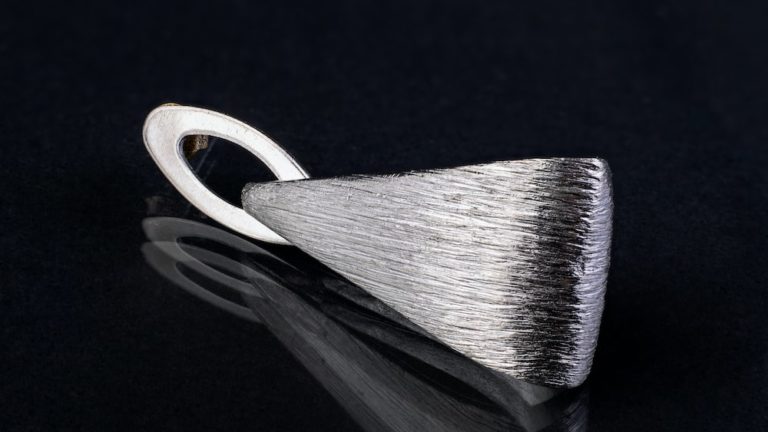Discover The Power: Does Green Tea Lower Blood Pressure?

Discover The Power: Does Green Tea Lower Blood Pressure?
Hello, tea enthusiasts! Welcome to another flavorful cup of tea gossips where we aren’t just sipping tea but talking about it too. So grab your favorite tea mug, and the kettle is on! Today, we’re not just talking of any regular tea, we’re discussing the fabulous, omnipotent, and green-as-a-summer-leaf – Green Tea! Pulling back the curtain on this verdant beverage, let’s explore if it holds the power to lower blood pressure. Do the leaves in your tea cup harbor a secret potential to soothe your arteries? Are we on the verge of discovering a natural elixir that prevents hypertension? Buckle up as we embark down this serene, green path!
Is this related to your health routine? Or are you just a curious tea lover branching out into exotic brews? Regardless, you’re guaranteed to leave with some intriguing insights! So boil those water pots, steep those leaves and let’s sip some knowledge!
As a wise man once said, “Jokes about tea do not always bag some laughs. Some need to steep a while, while some are simply oolong one’s funny bone”. So, brace yourself for some moments of light-hearted humor and maybe a pun or two between the serious tea-talk!
Understanding Green Tea and Its Health Benefits
Before we dive into our investigation of the green tea-blood pressure saga, let’s familiarize ourselves with green tea – the mysterious benefactor and star of today’s episode. Embark with us on this journey where we unravel the health benefits hidden beneath its emerald leaves.
What is Green Tea?
Green tea, unlike its cousin black tea, is not allowed to wither and oxidize, leaving it, well, green! In essence, it’s like the Sleeping Beauty of tea leaves – kissed to life while still fresh and young, unlike black tea that’s fully mature before it’s steeped. Uniting within each leaf is a powerhouse of bioactive compounds that are brimming with potential health benefits.
They say, “All good things come in small packages”, and our delicate green tea leaves are no exception. These petite yet powerful leaves are packed with polyphenols and flavonoids, antioxidant giants in the world of molecular chemistry. They dance the tango with harmful free radicals in the body, leaving us healthier and more vibrant. Talk about a power-packed performance from such little leaves!
Green tea leaves are packed with polyphenols and flavonoids, antioxidant giants in the world of molecular chemistry, that can help fight harmful free radicals and promote better health.
The Health Benefits of Green Tea
There’s a reason health-conscious folks and tea connoisseurs alike are ga-ga over green tea! Its dance routines with free radicals help in combating inflammation, reducing heart disease risk, and even delaying the hands of time by slowing down aging! That’s right, folks, digest that! Now that’s something to brew upon, huh?

Our green protagonist also introduces us to a unique character: Epigallocatechin gallate (or EGCG, because who wants to repeat that mouthful?). EGCG, an immensely powerful compound that wages war against various diseases, from heart issues to cancers, finds a thriving homeland in green tea. Green tea isn’t just a beverage; it’s like a supergroup of health superheroes in every sip!
Green Tea and Blood Pressure: The Connection
Now, back to our heart (or artery) of the matter. We’ve always known that green tea has had a positive effect on overall heart health, but can it actually lower blood pressure? It’s time we untangle these stems and leaves to find secret whispers of the correlation.
How Green Tea Affects Blood Pressure
The compounds in green tea are like a SWAT team for your body. Their operation against high blood pressure is twofold. First, they induce relaxation in your blood vessels, which helps with, what in medical language we call, vasodilation. It’s like hosting a yoga session for your tense and tightened veins.
Secondly, they give a stern lecture to an enzyme called Angiotensin Converting Enzyme, or ACE, that’s known to hike up blood pressure. Now the ACE is put in its rightful place, resulting in an overall subtle reduction in blood pressure. So, sipping green tea is akin to enrolling your blood vessels in a well-being retreat.
Studies Supporting Green Tea’s Effect on Blood Pressure
To borrow from Detective Sherlock Holmes, this is “a three-pipe problem.” So, we need to examine not one, but several studies and trials to find our answer. In 2004, a study published in the Archives of Internal Medicine concluded that regular consumption of green tea led to a significantly lower risk of hypertension. Imagine, just a few leaves could make such a profound influence!
And then came the year 2014, with a comprehensive review of 13 green tea trials, resulting in similar observations. And yet another review of 25 randomized controlled trials confirmed that green tea produced substantial reductions in systolic and diastolic blood pressure. So, the stage seems to be all set for our next big question – is green tea a winner for heart health?
The Role of Green Tea in Heart Health
Now that we’ve dipped our toes in the calming green puddles of green tea and its potential for blood pressure control, let’s wade deeper into its impact on overall heart health. If green tea’s the key, what doors to heart wellness does it unlock?
Green Tea and Cardiovascular Disease
Green tea’s compounds work industriously to prevent atherosclerosis, the build-up of plaques in arteries that often lead to heart diseases. They’re like the ever-vigilant night watchmen who ensures your arterial passageways are clear, reducing your risk of heart attacks and strokes.
A study published in the Journal of the American Heart Association asserted that individuals who drank more than 5 cups of green tea per day had a 26% lower risk of death from heart attack or stroke. Yes, more sips of green tea could mean fewer trips to the doctor!
And to top it off, another study revealed that green tea reduced harmful LDL cholesterol levels. This effect, coupled with its blood pressure-lowering capabilities, makes green tea a potential knight in shining armor against cardiovascular disease. Brew, sip, repeat and keep your heart beating strong!
Green Tea and Stroke Risk
Hey, I’m not sure if you know this, but your tea cabinet may be housing one of the best defenses against strokes. I’m talking about the superhero of the leaf world: green tea. Research suggests that this tea can be a potent ally against stroke-risk. How, you may ask? Well, buckle up!
Green tea, with its powerful quantities of antioxidants, has been shown to improve blood flow and lower cholesterol levels. This one-two punch can diminish your stroke risk! If this were a heavyweight fight, green tea would be the reigning champion. A study in Japan that had over 82,000 male and female participants showed that those who consumed green tea daily had a significantly lower risk of stroke.
Other Health Benefits of Green Tea
Bet you didn’t know that green tea is a bit of a show-off, huh? Lowering blood pressure and stroke risk are just its opening act. The health benefits of green tea extend far beyond cardiovascular health, reaching as far as weight loss and diabetes management.

Green Tea and Weight Loss
Can I let you in on a little secret? If you’re sipping on green tea, then you’re actually sipping on a weight loss agent. Confused? Allow me to explain.
You see, green tea might just be your new fitness buddy. Containing a bioactive substance called EGCG, it aids in boosting metabolic rates. This is kind of like revving up your car’s engine, except this time it’s your body and your metabolic syndrome. So not only are you enjoying a refreshing cup of tea, but you’re also opening a window to achieving your weight loss goals. Hands up if you didn’t see that coming!
Green Tea and Diabetes Management
It doesn’t stop there, folks. Apparently, green tea didn’t think being a heart-helper and waistline trimmer was enough. So, it decided to throw diabetes management in there as well. Talk about an overachiever, huh?
Science says that green tea can enhance insulin sensitivity and lower blood sugar levels, which is like hitting the jackpot if you’re a diabetic or pre-diabetic. In a study involving over 17,000 participants, those who chugged more than six cups of green tea per day had a 33% lower chance of developing type 2 diabetes. Now, that’s not an excuse to go guzzling gallons of the green stuff, but it sure earns green tea another shiny gold star.
Interestingly, green tea extract has also shown promise in managing blood sugar levels. However, it’s always prudent to consult your doctor before you toddle off down the extract path.
How to Incorporate Green Tea into Your Diet
Alright, green tea lovers – let’s get down to business. What’s the best way to get green tea into your daily routine without spending all day by the kettle? Squeezing out maximum benefits from our little leafy friend is actually easier than you might think.
Best Ways to Prepare and Consume Green Tea
Ready to supercharge your tea game? Here’s how you can reap the most benefits from green tea:
- Less is More: It’s a tricky beast, green tea. Over-brew it, and you’ll unlock its bitter side, which is about as pleasant as licking a lemon. Aim for steeping it at a lower temperature (~176°F or 80°C) and not more than 2-3 minutes.
- Fresh is Best: Green tea isn’t a fine wine – it doesn’t improve with age. Try to consume it within six months of purchase.
- Unleash the Leaf: Opt for loose leaves over tea bags. You’ll get more potent health benefits and a fuller flavor profile.
To supercharge your tea game, steep green tea at a lower temperature for no more than 2-3 minutes, consume it within six months of purchase, and choose loose leaves over tea bags for more health benefits and flavor.
Recommended Daily Intake of Green Tea
The age-old question remains – how much green tea is too much? Well, given the caffeine content and everyone’s unique tolerance, there is no set-in-stone answer.
However, most studies show that 3 to 5 cups per day strike a balance – granting substantial benefits without leaping into the land of side effects. But always listen to your body, folks. If two cups work for you, awesome! There’s no need to dabble in tea-drinking marathons just for the sake of it.

Precautions and Potential Side Effects of Green Tea
But hang on a second! Before you dive headfirst into gallons of green tea, there are a few precautions and potential side effects to keep in mind. It’s like everything in life; you need a balanced approach. Even too much water can be problematic, right? So let’s be savvy and not just assume that because green tea is natural, we can drink it by the bucket-load unscathed.
When to Limit Green Tea Consumption
Ah, green tea – the ubiquitous beverage that seems to be wagging its antioxidant-rich whiskers at every health-conscious individual out there! Chock-full with chemicals that appear to wrestle nasties within our bodies, it’s no wonder that people swoon like star-struck stalkers in its presence. Now, you might find yourself going a bit overboard, chugging down jugs of this liquid jade in an attempt to imbibe its healing properties. But, just like the proverbial ‘too much of a good thing’, there could be a time to give it a breather.
Regarding when, a couple of factors come into play. For instance, if you happen to be an expectant mother, it’s advisable to limit your intake due to the caffeine content. Also, those suffering from type 1 diabetes might want to dial down their consumption as the tea can affect insulin levels. The key takeaway here is this: while a moderate dose of green tea can be beneficial, excessive intake could tip the balance unfavorably.
But wait! Before you pack away those glorious green leaves, remember to consult your doctor or a dietitian. With their expertise, they’ll help nail down the perfect balance, avoiding any adverse trips to an over-tea-dosed reality.
Possible Interactions and Side Effects
Moving on to some possible side effects and interactions of our emerald elixir. Probably to your surprise, this seemingly mild-mannered cup of tea harbors a few potential eyebrow-raisers. For starters, frequent consumption of large amounts can cause stomach problems, such as nausea and diarrhea. And while sipping on this brew might soothe your senses, it might also lead to anxiety and disturbed sleep patterns due to its caffeine content.
Another thing to keep in mind – iron absorption from your diet can be affected by regular green tea consumption. Now, don’t fret! Your spinach salads aren’t losing their iron-clad superpowers. It’s just that it might be wise to avoid drinking green tea right before or after an iron-rich meal.
Finally, if you’re already under medication, be it for high blood pressure, heart problems, or liver disease, you might want to get a consultation before making green tea a habit. Because like any prima donna worth their screen time, green tea can interact with medication in unpredictable ways. Safety first, folks!
Frequently Asked Questions (FAQs)
1. How much green tea should I drink to lower my blood pressure?
Concerning green tea for blood pressure management, the recommended number seems to be two to three cups per day. This average intake can strike the perfect balance, serving the brew’s healing potential without overdoing it.

2. Can I drink green tea if I’m on blood pressure medication?
If you’re on medication for blood pressure, it’s essential to consult your doctor before adding green tea into your routine. As beneficial as it might be, green tea can interact with certain medications, so it’s always wise to get that profesional’s ‘thumbs up’.
3. Does the type of green tea matter when it comes to blood pressure?
When talking about blood pressure, the type of green tea does indeed matter. Pure, organic, and unprocessed green tea is usually the best choice. It retains maximum antioxidants and other beneficial compounds as compared to highly processed varieties.
4. Are there any risks associated with drinking green tea for blood pressure?
Associated risks with drinking green tea for blood pressure moderation do exist. Overconsumption can lead to insomnia, stomach problems, iron deficiency, and even increased blood pressure due to high caffeine levels. Hence, moderation is suggested.
Conclusion
We’ve journeyed together through the myriad facets of green tea and its effects on blood pressure. Along this path, we’ve unraveled the intertwined threads of choice and balance that determine the impact of our tea-drinking habits.
We’ve understood that while the antioxidants and other beneficial chemicals in green tea can provide health benefits, an overstep into the realms of excessive intake can lead to side effects and complications. To extract the best from this emerald beverage, moderation and guidance from health professionals are key.
So here’s to you, tea enthusiasts! May this guide help brew your cups not just with the rich essence of green tea, but also with the wisdom of choice and balance. Take a sip, relax, and let the liquid jade do its magic. Stay healthy and keep that sparkle in your life. Until next time!
Best, Zoe






